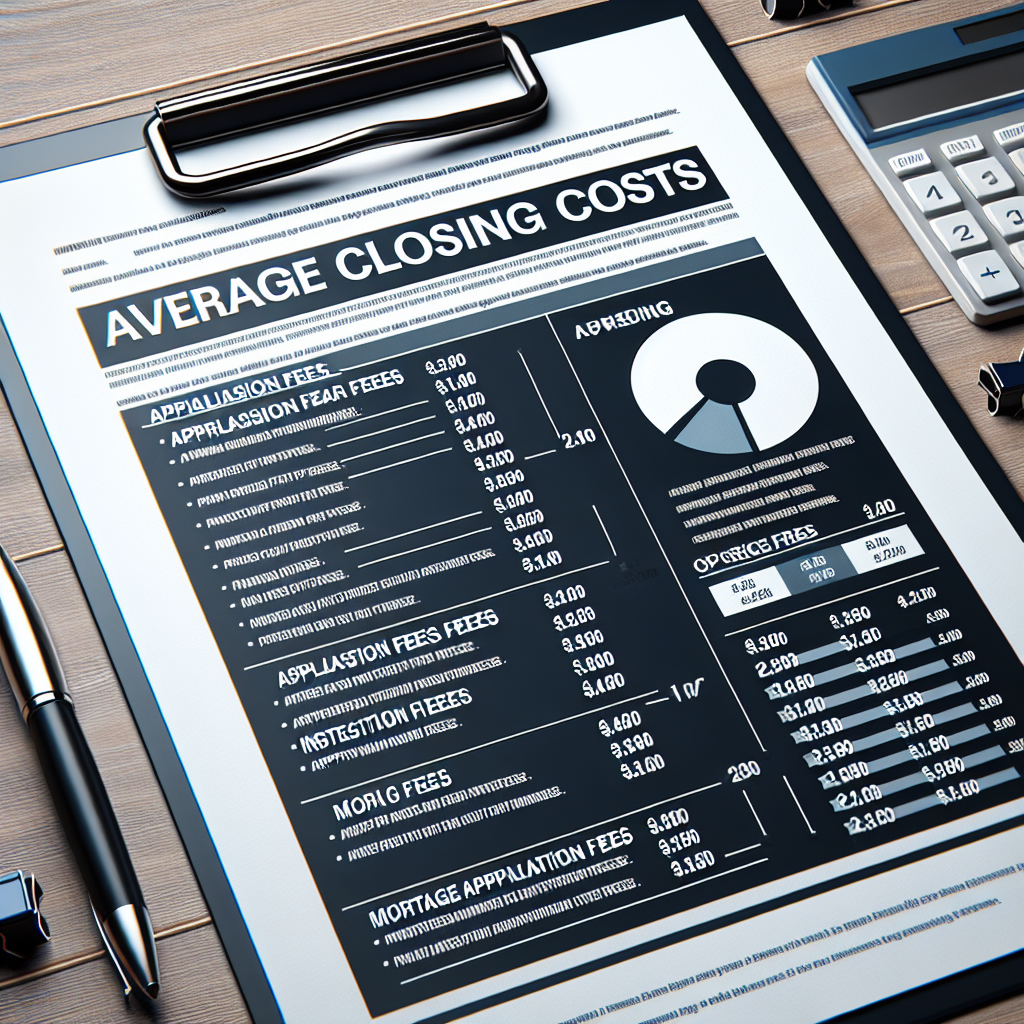
Average closing costs
The Comprehensive Guide to Understanding Closing Costs in Real Estate Transactions
When buying or selling property, closing costs can play a significant role in the financial landscape of the transaction. Whether you're a seasoned real estate investor or a first-time homebuyer, understanding these costs is essential. In this article, we will delve deep into what these costs entail, their significance, and how they can vary greatly depending on several factors.
What Are Closing Costs?
Closing costs refer to the fees and expenses that are incurred when finalizing a real estate transaction. These costs are associated with the closing or settlement process, which is when ownership of the property is officially transferred from the seller to the buyer. While they can fluctuate widely based on various elements, they typically include a variety of charges beyond just the purchase price of the property.
The Components of Closing Costs
In order to get a clear understanding of what closing costs encompass, we can break them down into several critical categories:
- **Lender Fees**: Charges imposed by the mortgage lender for processing the loan.
- **Title Insurance**: Protects against any potential disputes over property ownership.
- **Closing or Escrow Fees**: Fees for the services provided by the closing agent or escrow company.
- **Home Inspection**: Costs related to assessing the condition of the property.
- **Appraisal Fees**: Charges for evaluating the home's value to determine how much it is worth.
- **Property Taxes**: Depending on the timing of the purchase, there may be prepaid property taxes.
Why Are Closing Costs Necessary?
Understanding the necessity of closing costs is crucial for anyone involved in real estate transactions. These costs are integral to ensure that all legal and procedural requirements are met during the transfer of ownership. They facilitate a smooth transition and protect both the buyer and seller by accounting for all potential liabilities that may arise.
Factors Influencing Closing Costs
Closing costs can vary dramatically depending on a range of factors, including:
- **Location**: Different states and regions have unique laws that affect the cost of real estate transactions.
- **Type of Property**: Residential properties typically have different closing costs compared to commercial properties.
- **Loan Type**: The nature of the mortgage can impact the fees associated with closing.
- **Negotiation**: Buyers and sellers can negotiate who pays for certain closing costs. Often, sellers may agree to contribute to the buyer’s closing costs as an incentive to close the deal.
What is the Average Closing Cost?
While the specific amount can vary widely, it’s important to have a ballpark figure in mind. The average closing costs in the U.S. generally range between 2% to 5% of the home's purchase price. For a home priced at $300,000, this could translate to an estimated total of $6,000 to $15,000 in closing costs. However, depending on the aforementioned factors, these costs could be higher or lower.
A Breakdown of Typical Costs
Let’s take a closer look at some of the most common closing costs you can expect:
| Cost Type | Estimated Amount | Description |
|---|---|---|
| Lender Fees | $1,000 - $3,000 | Includes application fees and underwriting costs. |
| Title Insurance | $1,000 - $4,000 | Pricing varies by location and purchase price. |
| Closing/Escrow Fees | $500 - $2,500 | Fees charged by the closing agent for their services. |
| Home Inspection | $300 - $500 | Evaluate the home’s condition before purchasing. |
| Appraisal Fees | $300 - $700 | Covers the cost of determining the property’s value. |
Where to Find Your Closing Costs Estimate
Before you dive deeper into a transaction, obtaining a Closing Disclosure is crucial. This document outlines all of your closing costs in detail. Here’s how to effectively find and prepare for your closing costs:
- **Request a Loan Estimate**: Ask your lender for a loan estimate that includes an itemized list of estimated closing costs.
- **Consult a Realtor**: Reach out to a real estate agent who may be able to provide insights based on local trends.
- **Budget for Additional Costs**: In addition to closing costs, make sure to account for moving expenses and unexpected repairs.
How to Lower Closing Costs
As a buyer, there are several strategies to consider to potentially reduce closing costs:
- **Shop Around for Services**: Different lenders, title companies, and inspection services may have varying fees. Comparison shopping can save you money.
- **Negotiate with the Seller**: As mentioned earlier, you may ask the seller to cover some of your closing costs.
- **Consider Lowering Your Loan Amount**: A lower loan amount can directly correlate to lower closing fees.
- **Utilize First-Time Homebuyer Programs**: Various government-assisted programs often offer reduced closing costs.
Conclusion
Understanding closing costs is a critical component in navigating the real estate market. While the average closing costs can serve as a guideline, personalized estimates are essential to avoid surprises at closing time. Equipped with this information, buyers and sellers can approach transactions more confidently, ensuring that they are well-prepared for the financial responsibilities involved. Ultimately, staying informed and strategizing your approach to closing costs can lead to a smoother real estate experience.
“Knowledge is power—in the world of real estate, it can also save you money.”```
By Guest, Published on July 28th, 2024